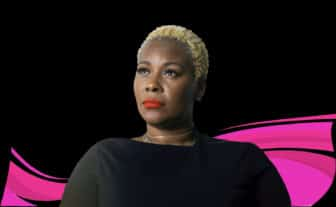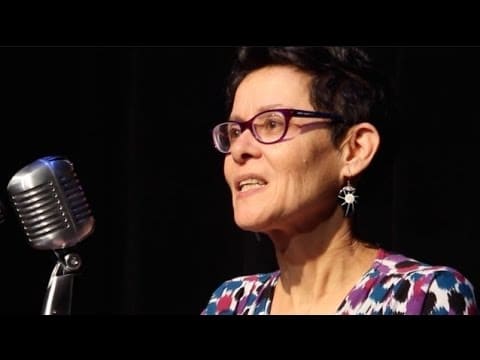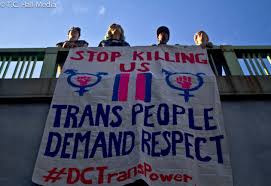
 Topeka K. Sam is one of seventy million. That’s the number of people in this country who have a criminal record or conviction. The founder and executive director of The Ladies of Hope Ministries (LOHM), she spent more than three years in federal prison on drug charges. Yet she considers herself lucky.
Topeka K. Sam is one of seventy million. That’s the number of people in this country who have a criminal record or conviction. The founder and executive director of The Ladies of Hope Ministries (LOHM), she spent more than three years in federal prison on drug charges. Yet she considers herself lucky.
“I knew before going in, while I was in, and after, that I had a great privilege. I’m a woman of color who has an education, entrepreneurial experience and a support network of family, friends and professional colleagues. When I came home, I had the ability to rebuild my life quickly.”
Topeka began planning her reentry while still incarcerated. Upon release in 2015, she could have returned to her job as a union chairperson, but found she had a new purpose in life. “I didn’t learn anything from prison, but I learned a lot from the sisters I met there, and I wanted change.”
She landed a part-time job, enrolled in a Christian ministry course and founded LOHM to help disenfranchised and marginalized women and girls transition back into society. Since then, she’s played an active role in educating the public and advocating for public policy. In early 2016 she held the first of 11 symposiums on “Real Women Real Voices: Where the People Meet the Policy.” She served as a Columbia University Beyond the Bars 2015 Fellow, a Columbia University 2016 Justice-in-Education Scholar, and founding member and national organizer of the National Council for Incarcerated and Formerly Incarcerated Women and Girls.
Most women don’t have any of Topeka’s advantages when they are released from prison. The correctional system that does little to prepare female inmates for release in terms of technical or financial skills. “The only thing they teach you in vocational training is knitting, crocheting and beading,” Topeka says.
Without family support, financial resources, skills or education, the first and biggest challenge for former inmates is finding a place to live. Often the only options – shelters or halfways houses — are inadequate. Some women are forced to return to abusive relationships just to have a roof over their heads.
Meanwhile, the world can change so much while you’re incarcerated that you need to learn how to navigate a world where even the most basic things – phone calls, Metrocards, the internet – have to be learned from scratch. “When I went into prison, I had an iPhone 3. When I came out, it was iPhone 5,” says Topeka. “But I met women who went to prison even before cell phones existed.” It’s a whole new world, where you don’t know how to make a phone call, use the internet or use a Metrocard.
That’s why, soon after she launched LOHM, Topeka founded Hope House New York City as a safe housing space for women and girls. “It’s a beautiful space in the Castle Hill section of the Bronx to heal from a life of violence and incarceration. Women get housing and food until they can move them into permanent housing. It gives them time to do the work of figuring out, ‘What do I do with my life?'
With a staff of three, a working board of four, and about 20 volunteers, LOHM recently partnered with Instacart, which provides a full year of meals for 3,000 families impacted by the correctional system. Hope House finally opened its doors early in 2018 and, after only two months, one of the first residents began studying cosmetology and plans to open her own hair salon. She’s also on track to getting her kids back from foster care. LOHM aims to create similar safe houses in each of the other four boroughs of New York.
Even more exciting is a new effort to build a specially designed internet platform that will connect other people with similar needs across the country. Using artificial intelligence and block chain technology, it will create opportunities for women and children to connect and share information about jobs, housing and other resources.
Looking back, Topeka says she is grateful that “I made up my mind that I had a plan and would execute that plan. Did I know so many opportunities and doors would open? I didn’t think it would be that quick, but I knew I’d do it.”
This is the fifth article in our new series, IN FOCUS: Eye on Changemakers, a collaboration between Women’s eNews and The New York Women’s Foundation (NYWF) to shed light on some of New York City’s most inspiring women-led non-profit organizations dedicated to empowering women and girls of diverse racial, cultural and socio-economic backgrounds.
 Catherine Ward is a contributing writer and editor at Women’s eNews. She has written for Woman’s Day, The New York Times, Reader’s Digest, Writers Digest and Poets & Writers, and has provided article, presentation and speechwriting services to corporations such as Pepsi and Ernst & Young. Recipient of numerous grants to lead creative writing workshops in the tri-state area, she is a published poet and translator, and author of, The Resilient Writer: Tales of Rejection and Triumph (Persea Books, 2005).
Catherine Ward is a contributing writer and editor at Women’s eNews. She has written for Woman’s Day, The New York Times, Reader’s Digest, Writers Digest and Poets & Writers, and has provided article, presentation and speechwriting services to corporations such as Pepsi and Ernst & Young. Recipient of numerous grants to lead creative writing workshops in the tri-state area, she is a published poet and translator, and author of, The Resilient Writer: Tales of Rejection and Triumph (Persea Books, 2005).
